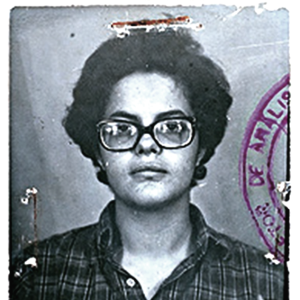
Brazil’s torture report brings a president to tears (Video)
By Adam Taylor
As the United States deals with the backlash from a Senate report on CIA interrogation methods, half a continent away, another country was dealing with its own troubled history. And for one world leader, it was sadly personal.
On Tuesday, Brazilian President Dilma Rousseff gave a speech at a ceremony marking the release of a report by Brazil’s National Truth Commission that examined the human rights abuses that occurred during Brazil’s 1964-1985 military rule. The 2,000-page report, a result of almost three years of investigation, offers a damning portrayal of the military’s actions, including killings, torture, sexual violence and forced disappearances. It recommended that those responsible be punished – despite a 1979 amnesty law that has blocked prosecutions.

During Rousseff’s speech, she briefly broke down in tears and received a standing ovation from the crowd.
Rousseff has first-hand experience of what the report describes. While she has been Brazil’s president since 2011, she had been a Marxist guerrilla opposed to the government when she was a student in the 1960s. In 1970, when she was just 22, she was arrested and held in prison for almost three years. According to documents previously covered by the Brazilian press, she was tortured during this time. She was reportedly punched so hard that it caused her dental problems, electrocuted on her breasts and other places, and forced into the notorious “pau de arara,” or parrot’s perch.
Rousseff went on to achieve great success in mainstream politics. She became known as a technocrat and rarely talked about her detention. While she later received financial compensation for her treatment during the dictatorship, in one account published in 2012, she said the wounds she suffered “are a part of me.”
It’s likely that even if Rousseff hadn’t experienced this personally, she may have had the same reaction. The commision’s report documents 191 killings and 210 disappearances, as well as 33 cases of disappearances in which the bodies were later found. “These numbers certainly don’t correspond to the total of deaths and disappearances but only to cases it was possible to prove,” the report notes.
In case studies, the commission detailed horrific torture methods, such as electric shocks to genitals, rape, psychological torture and worse. One man was tortured next to his 16-year-old son. Notably, the report found that the United States had spent years teaching the torture techniques to the Brazilian military during that period.
As The Post’s Dom Phillips wrote earlier this year, Brazil’s military dictatorship has long been the elephant in the room in the country. However, as the nation marked the 50th anniversary of the coup that installed that dictatorship, there were signs of a shift. Not only were there more reflections on the past, there also were reflections on the legacy of the past – such as the military police force. Before the anniversary, a verified Facebook account linked to Rousseff made what was an apparent reference to the coup by changing her photograph to a now-iconic, dictatorship-era image of her.
The National Truth Commission was set up by Brazil’s Congress and sworn in by Rousseff in 2011. While its report identified more than 377 individuals responsible for human rights abuses during that time, with about 100 of them still alive, the commission has no powers to prosecute. 1979’s amnesty law has proved an obstacle to any trials for past abuses, and Brazil’s Supreme Court blocked a 2010 request to modify the law, despite pressure from human rights organizations.
“The commission has made a major contribution by providing an authoritative and long-overdue account of the horrible crimes that took place during the dictatorship,” Maria Laura Canineu, Brazil director at Human Rights Watch, said in a statement. “Just as important, it has pointed the way to the next crucial step that Brazil needs to take: making sure that those who committed atrocities are finally brought to justice.”
Rousseff, because of her past and pressure from her domestic critics, is seen as unlikely to push for any changes to the amnesty law. After she composed herself on Wednesday morning, she told the audience: “We, who believe in the truth, hope that this report contributes to make it so that ghosts from a sad and painful past are no longer able to find shelter in silence.”
(From The Washington Post)
[The Dilma Rousseff photo on top by Fernando Bizzera Jr./European Pressphoto Agency]


